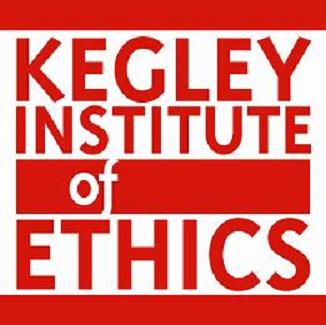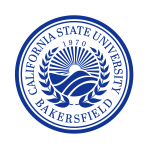4 Questions with KIE Faculty – Dr. Jorge Moraga
Contributed by KIE Media Intern, Angela Beardsley
Interview with Dr. Jorge Moraga, KIE Affiliate Faculty and Assistant Professor of Interdisciplinary Studies, CSUB. See Dr. Moraga’s bio here.
- How does ethics relate to your research, teaching, and/or public engagement?
Ethics, the restorative practices that help guide my day-to-day, is rooted in continued self-reflection, intersectionality, and a deep appreciation for historical consciousness. In the classroom, it informs my teaching philosophy in vital ways, particularly my modeling for students the need for critical, political, and social justice oriented citizens. From an activist/scholar framework my teaching advances understandings of how systems of oppression operate in U.S society, while also empowering students to examine the ways social movements and human agency transform the status quo. In any given class and for new course preps, my ultimate goal in the classroom is to facilitate critical dialogues that help students un-learn the many fallacies and myths seamlessly absorbed throughout their lives, while developing a stronger sense of who they are, and can be, as ethical beings.
- What is a current project you are working on that excites you? (Broadly construed).
A new project I am excited about deals with mapping how Ethnic Studies — an interdisciplinary field of study that emerged from the decolonial and civil rights movements of the mid-to-late 20thcentury — has developed in Bakersfield, particularly at CSUB. With a mini-grant funded by the Research Council of the University, and the assistance of sociology undergraduate Erica Ortega and Emily Poole of Campus Programming, I am in the middle of organizing the “CSUB Ethnic Studies Caravan” to attend the 3rdAnnual Ethnic Studies Conference at California State University Stanislaus. My goal here is to have as many interested students (and faculty!) in Ethnic Studies (i.e., Latina/o-Chicana/o-Studies, African American Studies, Native/Indigenous Studies, and Asian American Studies) to participate at this conference, and ideally get inspired and empowered by other Central Valley conference participants to further the critical project of epistemological diversity and “trandisciplinarity” that Ethnic Studies can offer us.
- If you could have dinner with anyone from the past or present, who would it be and why?
Over the past few years I have excavated the cultural histories of professional Latino/a athletes in North American sporting scapes, so I would love the chance to have dinner with The Great One: Roberto Clemente. Clemente was the first Latino pelotero inducted to the baseball hall of fame at Cooperstown, New York. His fierce competitiveness on the diamond field was only matched by his commitment to anti-racism and social justice advocacy. A proud descendant of Carolina Puerto Rico, Clemente often vocalized his opposition to Jim Crow racism and its explicit biases against black and brown shades. A 12-time All-Star, 2-time World Series champion, and member of the 3,000 club, Clemente set the bar for how his Latin/o American contemporaries can navigate las ligas mayores; but equally significant was his dedication to the world’s most vulnerable. The fact that the 1971 World Series MVP passed on in a plane full of medicine and food intended for the victims of the 1972 Nicaragua earthquake evidences the radical love that Roberto Clemente had for others. His legacy on and off the field should remind us that every day is an opportunity to remake the world.
- What is an important project or topic you would like KIE to prioritize over the next three years?
One topic I am interested to see the Kegley Institute of Ethics grapple with in the next few years is the intersection of sport and ethics. Whether issues stemming from “trophy kids” and the corporatization of youth sports, or the “amateurism” of big-time collegiate athletics, to the number of gendered, health, racialized, ecological, and trans-phobic issues confronting a number of pro franchises and federations, sport and physical culture remains contested terrain in society. And yet, sports remain one of the most powerful ways that everyday people can identify with and find common ground. I believe the Kegley Institute should stake a role in shaping public discourse over the problematics –and promises — of sport across our local and regional area, while staying contemporary regarding the ever-shifting national and global boundaries and politics of sports, specifically as it pertains to cultivating ethical forms of belonging, competition, and physical human expression.





